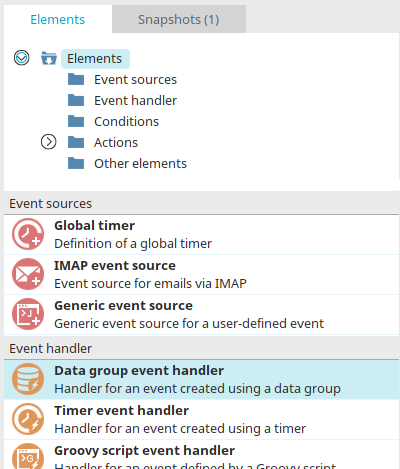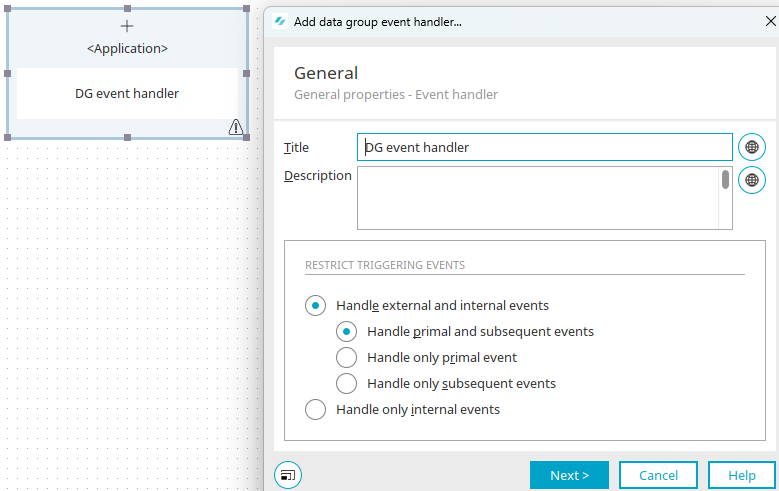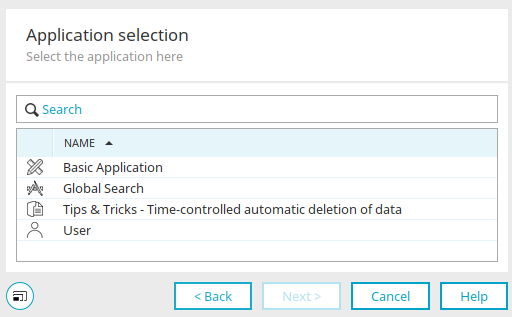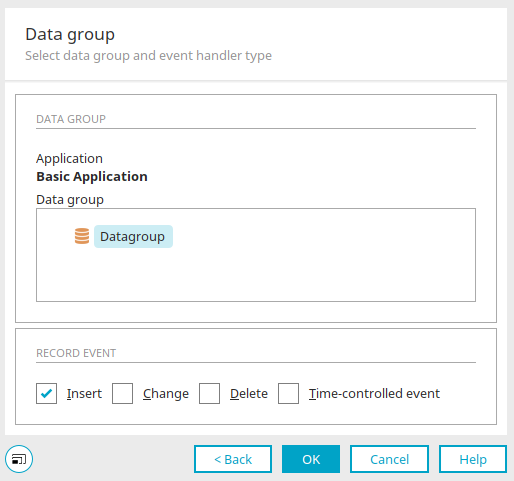Data group event handler
A data group event handler reacts to data group events in applications:
-
After inserting a data record
-
After refreshing a data record
-
Before deleting a data record
-
When resubmitting a data record via a timer
Actions and conditions can be linked to the data group event handler.
The data group event handler can be found in processes in the "Elements" area. It belongs to the "Event handler" category. From there, it can be dragged & dropped to the desired location on the workspace and then configured. General information about creating process items can be found here.
If you have created the data group event handler on the workspace, open the properties dialog by double-clicking on the element.
General
You can also access this dialog in the settings of the process elements.
-
Timer event handler
-
Groovy event handler
-
IMAP event handler
-
Generic event handler
Title
Enter a title for the action here.
Description
A short description can be entered here.
![]() Multilingualism
Multilingualism
In each case, opens a dialog where the text can be entered in multiple languages. Click here for more information about this topic.
Restrict triggering events
In this section, you have the ability to narrow down the events to which the event handler responds. A distinction is made between two types of event:
-
Internal event
An event, which results from a process-integration action
-
External event
All other types of event, e.g. the creation of a data set via the browser, or the creation of a time-controlled event when a timer job runs.
Handle external and internal events
The event handler responds to both types of event. You can define the following settings in addition for data group and Groovy script event handlers:
-
Handle primal and subsequent events
-
Handle primal event only
-
Handle subsequent events only
These settings are not available for timer and generic event handlers.
Handle internal events only
The event handler responds to an event that comes from an Include processes action.
Start overdue timer jobs on server start
Means that the timer produces all events retroactively, if the server was shut down at the actual execution time.
Click "Next".
Select application
You can search for the name or the GUID of an application here. Select the application whose data is to be used.
Click "Next".
Data group
Select the data group where the triggering event takes place.
Record event
Insert
The data group event handler responds when a new data record is saved in the connected application.
Change
The data group event handler responds when an existing data record is modified and saved in the connected application.
Delete
The data group event handler responds when a data record is deleted in the connected application.
Time-controlled event
Means that the data group event handler responds to messages from timers which affect the data group at other points in this process or another.
Click "OK" to complete the configuration.



